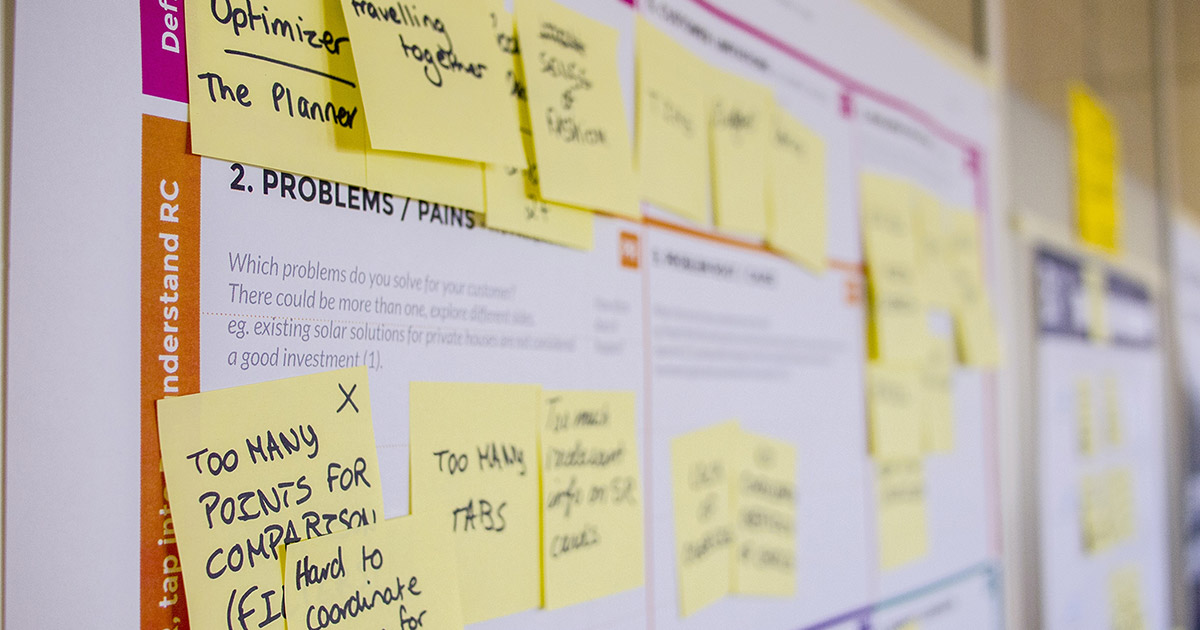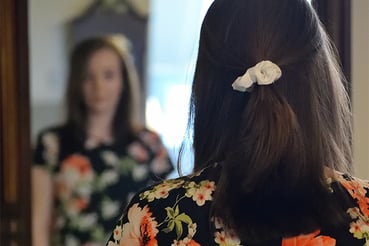Does Your Team Feel Unseen? Close the Leadership Disconnect with 2-Way Communication
Editor's Note: In July 2025, EMS1 and Fitch & Associates released their annual EMS trend survey, What Paramedics Want, proudly sponsored by Pulsara....
20 min read
 Team Pulsara
:
Oct 19, 2020
Team Pulsara
:
Oct 19, 2020

Pulsara CMO Kris Kaull recently had the exclusive opportunity to sit down with Brett Lyle, strategist, creator, and founder/coach at Brett Lyle Coaching and the Emergent Leadership YouTube channel. Kris and Brett discuss tangible practices that define and reshape mindsets, talk daily to-do lists, and lifelong goals and accomplishments. Kris also shares the tools he has used to overcome entrepreneurial challenges and explains how he intentionally designed his clinical career to be both personally fulfilling and professionally valuable to the industry.
Special thanks and shout out to Brett for this awesome interview and opportunity! (To see more of Brett's work, follow her on social, or to contact her, see her links at the end of this post).
Watch the exclusive interview in the video below, or read on for the full conversation.
Brett Lyle:
Hey guys, welcome to Emergent Leadership. I am fortunate enough to be spending some time with Kris Kaull today. Kris, thanks for being with us.
Kris Kaull:
This is great. I'm always excited and humbled to have these types of conversations.
Brett Lyle:
Kris is currently the Chief Marketing Officer at Pulsara, a company that specializes in healthcare communication technology. But Kris, you've done some really incredible things over your career. You started out as a clinician, EMT, paramedic, and flight paramedic. You spent some time with one of the large agencies in the industry. And, you've managed and help grow ambulances services yourself, as well as after having started paramedic.com in 1999, and co-founded EMS1.com. You've got your fingers in a whole lot in the industry, Kris.
Kris Kaull:
Yeah. It sounds really compelling and awesome, right? In 1999, before Al Gore invented the internet, I ultimately acquired paramedic.com. It was just a domain name at that time. And then grew that to this leadership following—this is back when you had titles like webmaster and forums and listservs. And then I actually just put it up on a shelf, and like you said, ran an ambulance service for a number of years. Then in 2007, the Praetorian Group came in and said, "Hey, we'd like to partner with you." Ultimately, long story short: they acquired paramedic.com, and then I came on as a co-founder for EMS1. In late 2013, I left to help grow Pulsara from a concept to where it is right now. And then, throughout that, I’ve been engaged in associations at the national level, and different board member roles, on and on and on.
You can read all that, like you said, on LinkedIn. But it's actually something that is not as compelling for me. When I was younger in my career, I would say, "Hey, what are the milestones? And how do I get there?" I couldn't wait until I was 30, because I wanted to do all these things. But people were like, "How old are you? No, you're not ready yet because of age." I had a number of hurdles in there. And now I look at it, and I actually don't care about any of those things.
Brett Lyle:
Isn't life funny like that?
Kris Kaull:
Exactly. It's not all these accomplishments; it was the journey. I'm not very good about being in the present. I'm more about looking at this list and asking, what do I cross off my list next? I feel more accomplished when I get things done. In fact, if I've gotten halfway through the day, I'll stop and actually write all the things I did and then cross them off.
Brett Lyle:
Yeah! Fellow to-do lister.
Kris Kaull: Yeah, exactly. And then I look back, though...and I have yet in my life to say, "That day was the best day of my life because I crossed the most things off my list." When you look backwards, what were the biggest accomplishments? And they were the times when I fell and skinned my knees, figuratively, in EMS. It's when individuals came and mentored me. And when I say mentored, I mean, they put their arm around me and took a walk and gave me the hard truths and made me a better person, right? It's when people told me “no.”
Yeah, exactly. And then I look back, though...and I have yet in my life to say, "That day was the best day of my life because I crossed the most things off my list." When you look backwards, what were the biggest accomplishments? And they were the times when I fell and skinned my knees, figuratively, in EMS. It's when individuals came and mentored me. And when I say mentored, I mean, they put their arm around me and took a walk and gave me the hard truths and made me a better person, right? It's when people told me “no.”
Brett Lyle:
I think it's very easy, especially in a culture like EMS or healthcare, where we're action driven. And when you get in that mentality, sometimes it's hard to get out of that and say, "Yes, it's important to do these things, but what are we really accomplishing?" And that's frankly why I wanted to bring you on, Kris, because you've accomplished a lot, which is incredible. But what I think is most interesting and makes you atypical in a lot of our networks is, you are a serial entrepreneur. Running a business and starting a business definitely speaks to your action item list thing. But I'd love to know more about some of the challenges. Being an entrepreneur in EMS, what have you run up against that you think is industry-specific that you might not have run up against in another industry as an entrepreneur?
Kris Kaull:
Good question. Well, I remember once sitting across the table at an EMS conference, having dinner. And it was kind of a round robin, about eight of us. And somebody said, "I've always worked in the bigger systems, EMS systems, bigger for-profit private ambulance services," which I have as well. They turned to me and said, "But you really live in the startup world and the entrepreneurial world, what's that like?" I just said, "Well, half the time, there's tears of exhaustion and aspiration, and it's a grind, and it's super tough. And then the other half of the time, you have all these wins and you're high-fiving each other, and you have these tears of joy. Either way, I'm crying every day."
But I like that, right? I like that challenge, I like that climb. In business, I like that competitive, athletic idea of pushing forward, being better, surrounding yourself with people that are stronger, faster, smarter, wiser than me.
But you're right, it's not for everybody. I mean, I've worked 27 years in EMS. And there is a lot of value in being able to clock out at seven in the morning, and as the other person comes on shift, I've left everything behind and I can play. But there is also value in being in a bigger, larger organization where you get a paycheck every two weeks, whether you do great work or okay work. You can leave work behind. There's value in that. And it's always greener on the other side, right?
You look at that like, "I didn't wake up tossing and turning being worried about my employees or my team or the company." And on the flip side, if I only did that, where I was hanging out and then clocking in and clocking out of shift, I wouldn't feel complete. I like to build things. And so that idea of building something that tangibly changes the lives of ten, a hundred, a thousand, or a million people is important to me. Yet I spent 27 years as a clinician, because tangibly holding the patient's hand and walking them through their experience in life was really important to me—that one-on-one time.
Brett Lyle:
You've hit on so many really big and important things. You clearly have not left behind your caregiver spirit, which makes you incredible at what you do, and I would attribute a lot of that to how you've grown Pulsara—how you've taken a company from being one of four people on the founding team, to being in almost every state and having a team of 65 employees and continuing to grow that. You’re still keeping true to that mission of patient care, doing what's right, and taking care of people. I think that's really incredible, Kris. That transition to marketing is not something you hear about a lot, from going from a clinician and having your fingers in technology. Was there a moment you said, "Guys, it's time to get off the truck. I want to do something else?"
Kris Kaull:
Yeah, no, it wasn't actually ever doing one or the other or transitioning; it was doing both from the very beginning. I do want to thumbtack that for a second, because you said something about mission and passion and vision, and there's something core to that. At Pulsara, we have a mission statement, vision statements, and these core qualities that are important. And yet we consistently have employees on the dev side—coders, computer programmers, developers, operation side, sales side—who come back and say, “Those have always been on the wall of every company I've worked for, but at Pulsara, they are actually core to how you make decisions.”

At Pulsara, we have a couple of things in our vision: One is grit. We hire people that have the mindset of: whether or not we actually have the time, "Yes, how can I help you? What can I do?" And we keep going—right when you're exhausted and don't want to go anymore, you just find it deep to keep going. That's grit,. And then the other one is servant leadership, which is: "I'm here to walk alongside you, and to help you. Help you, the patient; help you, the nurse or paramedic or physician that uses Pulsara; and then help you, our colleagues." We don't say employees; it's our team, my family. I've got my family, and then I've got my Pulsara team. Servant leadership and grit are huge to my core, and the core of our company. And people also walk alongside you feeling inspired towards grit, perseverance, doing what it takes, and sacrificing of themselves for the greater good of others. I love that.
Brett Lyle:
In this industry, if people can get behind something bigger than themselves, they're going to work hard, and they're going to put in the hours. That does affect the business side of the house—turnover rates versus retention, for example. But the value that comes from that is that people feel cared for. And whether you're a self-proclaimed emotional person or not, there's huge value in the culture where people feel like they're valued. It affects how they show up to the patient, how they show up to their partners, how they respond to tough decisions and leadership and shift bids, and all of those things that as a leader, it's your responsibility and your obligation to make tough decisions. And they don't always go well.
Have you come across something that you were like, "I put my heart and soul into this, and it didn't go the way I wanted it to?" Let's talk about some of those challenges and failures. Obviously, you look at your resume and Kris, you've accomplished a ton of really incredible things. You look back over a 27 year career and some people, maybe even some of our audience members are going, "What have I done in five years? This guy's doing ten things. What have I accomplished?" But tell me some of the challenges.
Kris Kaull:
It's so great that you say, "Tell us, can you think back when there was a challenge?" I'm like, "Brett, I spilled coffee three times in the last 24 hours, including 15 minutes before we got on, and I had to go change." I've changed outfits four times because I spill coffee all the time. I’m far from perfect.
The resume and stuff doesn't seem to be as relatable to me as the skinned knees, as the things that didn't go well. The times when it doesn't go well with employees, or it doesn't go well with employer—it goes both ways—or it doesn't go well with customers. All of those are opportunities to learn from each other. And I can tell you this true to my core, 100% of those types of things get “fixed” or moved forward when the other person's voice is heard. You often hear in HR, "if you're a leader, you should not be friends with people on social media, because there's a liability there of knowing what they're doing off shift or when they're doing this." And I have a great friend, Mike Taigman, who says, “I don't subscribe to that. Because when I get a call from the fire department or the hospital, and they're like, 'Hey, this person was really short today’ and instead of reprimanding them for doing that” — which, listen, there are times that you have to hold the line. But by having that connection with people, Mike also knows that their child is really sick, or that they're going through some personal issues. They may be basically barely hanging on in work, but they have to work, but their mind is on the other things that are going on. So it doesn’t help to pile more stuff on them, whether it's "we're going to give you a written warning" or "that's unacceptable."
You often hear in HR, "if you're a leader, you should not be friends with people on social media, because there's a liability there of knowing what they're doing off shift or when they're doing this." And I have a great friend, Mike Taigman, who says, “I don't subscribe to that. Because when I get a call from the fire department or the hospital, and they're like, 'Hey, this person was really short today’ and instead of reprimanding them for doing that” — which, listen, there are times that you have to hold the line. But by having that connection with people, Mike also knows that their child is really sick, or that they're going through some personal issues. They may be basically barely hanging on in work, but they have to work, but their mind is on the other things that are going on. So it doesn’t help to pile more stuff on them, whether it's "we're going to give you a written warning" or "that's unacceptable."
It may be unacceptable. We can correct that behavior. But what's the heart issue? What's going on just under the surface? This doesn't seem aligned with who you are. Your head is not in the game. What can we do to walk alongside you? Talk to me. How do you feel, right? What does that make you feel?
My wife is super great because she's very soft-spoken and very much of an introvert. When I first met her, she had books everywhere, even in the kitchen, in the pantry where the cereal boxes are. Like—I have books, but if you opened up the pantry in the kitchen, there are Cheerios, Wheaties, books, books, books, books. She stored books wherever she could.
Brett Lyle:
That's a joke. You're kidding.
Kris Kaull:
No, I'm actually not kidding.
Brett Lyle:
I love that.
Kris Kaull:
Yes. And she is one of these introverted, strong, silent leaders. People are often like, "I need to talk to you" and she says, "Let's go to coffee." And she hangs out with them. Afterwards, I'll say, "They always seem like you open their eyes to the world and you give them all this advice. What'd you say?" And she'll respond, "I didn't say anything. I just listened." In their head, they're telling themselves their own story they start to believe it. But then, when they say it out loud to somebody else, they have to reckon with the fact that it doesn't seem as compelling. And then she just asks questions ... "What do you think you should do about that?" And, "What do you think is the right thing?" She says, more often than not, they already know the answer. They just needed to bounce it off someone.
Brett Lyle:
Yeah. It is interesting. I think my upbringing was similar. My mom had us pick our punishments when we were little. She’d say, "Well, what do you think is appropriate?" And it's that fine line, because you always want to say, "I think that five minutes in time out sounds sufficient," but you know that you're going to get grounded for a month.
It's an interesting concept that applies both ways—the childhood experience of picking your punishment, or as an adult, when you're in a work environment and you really have to have that hard conversation.
And when your leader looks you in the eye and says, "Where do we go from here?" and puts the ownership on you, it changes things to say, look, you are empowered. If things are not going well, if we've got a behavior we need to correct, or a one-time event, I think everybody can kind of agree with that. But leadership, at least to me, is not about those one-offs and “let’s smack people's hands and respond.” It's what you're saying: how do you walk alongside people and coach them through challenging times? It sounds like you do that well.
Kris Kaull:
Well, that's the word, right? And I don't know if I do it well; I think I'm always trying to do it better. I actually don't like conflict and I tend to be really positive, so I will go a long time before I'm like, okay, this is a trend and we need to deal. But I'm not scared of it, because it's not discipline; it's coaching.
Mentorship is different. I'm very passionate about mentoring others. But the people that I mentor, that is a relational thing that's long-term. As we walk alongside in life and where they're at, we meet each other and work through different things. Mentoring is a component of coaching, but coaching is active.
A colleague of mine, Dale Pearson, talks about coaching, and he says that you only have two options: to coach up, or coach out. And sometimes people aren't a good fit. Sometimes they need to pursue other things. And in those cases, it's not actually that hard because it ultimately will be a better fit for them, and they know it as well. And so when they find what's right for them, they can do that. In having those hard discussions, it’s very similar to EMS. When we don't say, “everything's going to be okay.” Or “it'll be all right.” Because I don't know. Sometimes people live in spite of my care. Sometimes people get sicker, even though I did everything right. We are all terminal. So instead of saying, "things will be okay," we say, "You're in the best hands possible. We're doing everything we can. We're going to walk you through this process."
As a company evolves, the culture may be that the people who are perfect at the beginning are no longer perfect. And that's tough because they're well-intentioned, good people, who wake up every day wanting to do good in the world. It's not like they’re bad people. It's just that they're good, but not great in that role. That's really the hard part about coaching.
I love that we're talking about mental health more often in EMS. Because if the best golfers and the best musicians and the best Broadway singers and actors all have coaches, you would think that it is okay to have a marriage coach and a life coach and to walk through these things so that you can become better and work through where you need to be.

Brett Lyle:
Exactly. I’m passionate about coaching. I think it's about the foundation. And it's comfortable.
I had a great kind of back and forth conversation with someone the other day, and they were talking about how in the industry, why there aren't a lot of leaders, or why we don't really embrace leadership—that we talk about it, but we don't really do it. And this person said, "Well, people need to be emotionally intelligent." And I stopped him and said, "Well, wait a minute, to be emotionally intelligent, you have to be aware and you have to be okay with being emotional. Like from the beginning, let's go back a step."
My logic is emotion, and then I rationalize: Why do I feel this way? Should I be feeling this way? I walk backwards from there, because there's nothing wrong with being emotional. There is something wrong with being emotionally unintelligent, or with being enraged inappropriately. There is something wrong with all sorts of things related to high levels of emotion. But I think to your point, Kris, there's something equally as upsetting and disconcerting about people not being okay with emotions, because we're humans and we have them—we all have them. When you don't talk about your emotions, that's when you get these other issues, right? Suicide, depression, alcoholism, and drug use and abuse are real prevalent problems in the industry. That’s really deep and really heavy, but the truth is, it's all foundational: that acceptance of emotion. And once you can accept that you have emotion, you get to be a human and it's okay to say, "Hey, I spilled coffee on myself three times today. Yes, I'm chief marketing officer. And I'm showing up being this really incredible guy, but I'm imperfect too." There's something very human about that.
Kris Kaull:
Well, let's talk about skinned knees. I mean, you look at these accomplishments, but the reality is, people have told me “no” a lot of my life. They've told me I can't do it. Sometimes they were right. I applied for positions and when I was young—there's nothing I wanted to do more than be a firefighter paramedic, and I consistently didn't make it through the interview process. Sometimes it was physical. I had just sprained my ankle and didn't make it through the physical exam, or didn't make it through the interview process, or didn't tell the right story. I've been fired -- twice. And to my core, I'm okay with that. It can be turned into a badge of honor, right?
My whole idea is, I throw ten things at the wall and double down on the four that stick, and then look for six more things to do. In those times when somebody said no, or they said, "hey, what happened back there wasn't okay." Or, "we're going to write you up and let you go," without even asking my side of the story—at the end of the day, those are really big reflective times. Who am I and what am I going to do?  We all have hard times. We all have struggles. We all think everybody else is better than us. We all wake up with low self-confidence in the morning when we look in the mirror. And you're right, there are tough things that we deal with in EMS. I tend to deal with stuff like that through humor. You can deal with it through escape, and that escape can be positive, like exercise and trail running. And it can be destructive, too, like drugs and alcohol, or abuse. We have to say, “it's okay to get help, it's okay to talk about it, it's okay to walk alongside each other.”
We all have hard times. We all have struggles. We all think everybody else is better than us. We all wake up with low self-confidence in the morning when we look in the mirror. And you're right, there are tough things that we deal with in EMS. I tend to deal with stuff like that through humor. You can deal with it through escape, and that escape can be positive, like exercise and trail running. And it can be destructive, too, like drugs and alcohol, or abuse. We have to say, “it's okay to get help, it's okay to talk about it, it's okay to walk alongside each other.”
There are a couple of things you shared the other day that resonated with me as well. You said you were listening to this Yale University course on basic principles, and one of them was gratitude—to show gratitude. I love that. I think it’s important because it completely changes the lens of what you look at in life.
When our kids were in junior high and early high school, we said, you need to be grateful for things. But just saying “you need to be grateful” doesn't actually change the world. And so my wife said, "Every night, sometime between evening and before you go to bed, you need to text our group three things you're grateful for. And at first they texted, "I'm grateful for this house. For family.” The big things. But as we kept doing it, we started to be grateful for the little things. “I'm grateful for that phone call that I wasn't expecting to get today from a friend I haven't heard from in a long time.” “I'm grateful that we ended up having to cancel plans and got to hang out together as a family.” But it could be the littlest thing—that I thought I was going to get a B+ on my algebra test and I got an A-. Ultimately, the family went to bed nightly with appreciation. Gratefulness became a tangible act. We weren’t just talking about being grateful.
Brett Lyle:
I love that. And I think it's so powerful that you're doing that in your home. I think the power in the industry is sharing those practices. And so I'm grateful that you're sharing your practices with us and with our listeners. That's something again, I personally am really passionate about. Everybody has their opinions on what things you should reflect on, but I personally do a day in review. And so, my day in review is: gratitude. I have my number of things I'm grateful for. And again, yeah, some of them are: I got through the day. Right?
Kris Kaull:
And you're grateful for it now.
Brett Lyle: Right. And it's looking back on it. Second thing I do, because you and I are two peas in a pod this way: what have I accomplished today? And when you're doing your journal at the end of the night, your accomplishment is not your to-do list. When you frame it as gratitude, now your accomplishments start to look for it. What did I get out of today? I have my gratitude, I have my accomplishments, and then I do affirmations. This is going to happen. And I speak my truth as if it's happening and there is no doubt. Because I think that that mindset is huge. And Kris, I'm confident that that mindset is what gets you comfortable with no’s. Get comfortable with “no,” and start celebrating your no's because you're one step closer to getting your "yes." And so that concept is kind of how I operate.
Right. And it's looking back on it. Second thing I do, because you and I are two peas in a pod this way: what have I accomplished today? And when you're doing your journal at the end of the night, your accomplishment is not your to-do list. When you frame it as gratitude, now your accomplishments start to look for it. What did I get out of today? I have my gratitude, I have my accomplishments, and then I do affirmations. This is going to happen. And I speak my truth as if it's happening and there is no doubt. Because I think that that mindset is huge. And Kris, I'm confident that that mindset is what gets you comfortable with no’s. Get comfortable with “no,” and start celebrating your no's because you're one step closer to getting your "yes." And so that concept is kind of how I operate.
Kris, I've got a sales background, you've got a marketing background. Do you think that mindset plays a role in our industry? If we think optimistically? If I say it this way? If I position it this way...
Kris Kaull:
Well, bigger than that, it's an actual earth truth. There are people who are reading the Bible every day, and they take out Bible verses and place them up on their mirror and they read that every day and those things come true. And then you can be in Eastern medicine, and they have a focus on something, and they focus, focus, focus, and it comes true. Then you have an Olympic athlete who knows that they've got one, two, three steps, hurdle, one, two, three steps hurdle. And they visualize themselves winning. They visualize every single movement and it comes true.
For me, it started small. I wanted to be a firefighter. No, bigger. Maybe a fire captain. Then, what about being a fire chief someday? That story just kept getting bigger -- ultimately working alongside thousands, hundreds of thousands of firefighters in marketing and publishing. And it is a life truth. It's an earth truth.
You have one last thing I did want to circle back to.
The one piece of advice for EMS leaders that I believe is super important is to say "no" to all the good things in life so you have time to say "yes" to the great things in life.
Brett Lyle:
Oh, I love that. That's very powerful.
Kris Kaull:
As a pleaser and somebody who likes to do things, my inclination is to say yes. If someone asked me to do something terrible, that's easier to say no to. We say yes to all the good things in life we think we're doing something that's great. But we should be saying no to all the good things so we have time to focus on the great.
That's haunted me—to make sure I'm doing the right things and not all just good things, but focusing on the great. And so that's one tangible thing when you're going back at night and reviewing your day and planning for the next. "What are the great things that I want to accomplish? What are the great things I have accomplished? And are there a lot of good things I need to just get out of my life?"
Brett Lyle:
Right. Which is an incredible perspective. And I'm sure for many of our listeners, a new one. When you have too much of a good thing, it becomes less good. That's the science. And I took this course through Coursera from a Yale professor—it's called The Science of Wellbeing, if anyone's interested. Incredible, big 10-week course with some practices and things. But the science is a way that our brains are wired is to normalize and stabilize. Just as you plateau with workouts, our brains do the same thing. We're wired for survival. We're always looking for problems to fix. And when there's no problems and everything is just great, that's why you hear all these sciences and studies of people that accomplish huge things.
Getting that mentality is incredible, Kris, to say, it's not just about doing good things, I've got to keep my eye on the ball for the things I'm really passionate about and the things that I really love and the things that are really going to bring me that level of success, but fulfillment, and that allow that dream to evolve. And it sounds like you've done that really well in the industry. You've gone from clinician on a truck, and doing flight paramedic stuff, working for other people, to building your own thing—you're obviously a part of an incredible organization. How do you get to marketing?
Kris Kaull:
I was in school originally to be an English and History major, and then ultimately my four-year degree was in technology education as a school teacher. And and I also worked in EMS through college. And when I got out, I had a tech background. I was the network administrator, web developer by day and a paramedic at night. And I had these two lives because like I said, it was before Al Gore invented the internet. So I lived these two separate lives, like: this is the computer, and then I go, and this is how I practice medicine. As our world has evolved, technology and EMS became one, and that's where my focus was.

But my specific story may or may not be relatable. What it is relatable is, you're an art history major, and you're really into graphic design and cartoons and you want to be a paramedic. We need graphic designers and artists in EMS. And if you're an engineer and you have an engineering brain and you can create and build structure, we need engineers in EMS. And so my background and my education and training was in technology and was in marketing, and I was able to mirror those. And so I was working in that world on this side and then EMS on the other side until they came together.
And I had a plan; I wanted them to come together. I wanted my full-time job to be in EMS around the things I love around computers and technology. That was before online media and content. But, my story, the part I want to resonate with others, is: what value and what experiences do you bring in your world that you can apply to EMS?
That's been what I like to call my unfair advantage. Other people say competitive advantage. I look at marketing differently than most marketers. I look at marketing as: how can I best tell this story by taking whatever other people are doing well in other industries and applying it to our industry? And what are some of the coolest things that other people have done in other areas? And does that make sense to take that thought process and apply it to our area? How do we collaborate and how do we move those things forward? You really want to be passionate about making sure that you're focusing on the great things and not just all the good things.
And you want to come all the way back around to wellness and prioritizing your health. If your bucket is full, then you're going to be able to give more.
We give everything in healthcare and end up so exhausted. It may seem selfish, but you need to take time for quiet, take time to journal, take time to exercise. If you can give yourself one hour out of 24, those next 23 are going to be 10 times better than if you didn't prioritize you. Like you mentioned ... for mental health wellness with suicide rates and depression and all the demons we carry ... we're going to be a healthier group by focusing on us, doing the great things, and then being strong in the things we're passionate about and bringing that into the industry instead of having to leave the industry to go do those.
Brett Lyle:
I love that. And obviously again, you've done that successfully. I think that's the message I'm hearing so strongly from you is you're clearly passionate about EMS. You're clearly passionate about healthcare, and others, and servant leadership. I'm feeling it, I'm in it with you. And that's the most important piece, is that we all recognize that we're in this together. It's so easy to get caught up in doom and gloom, and “we have terrible leadership and nobody gets me, and I'm working my tail off and nobody appreciates.” It's so easy. I guarantee—I bet you a hundred bucks, Kris—I could go to any EMS shop, fire station, hospital, and I can find at least one person who will give me their sad sob story about how terrible their life is, and how they hate their job. But I think that the challenge that I see—and the excitement that's ahead of us—is that there are people like you, and people like my other guests, who've come on the show to say: "You can do it." And, “I'm not asking you to suppress what you love, I'm asking you to find it and dive into that.” Obviously, you've done it.
I know mentorship is a huge value for you. If there are people out there who are like, “Kris seems so cool and he knows his stuff, and I want him to be on my walk with me, how did he do it?” How do they continue the conversation with you, Kris?
Kris Kaull:
Well, that's the perfect way to close this up. There are amazing people who have done amazing things at EMS. And their common thread is, "I'll walk alongside of you. I'll help you, I'll mentor you." And so in the same vein, you can find me on social media. You can find me on Facebook or LinkedIn or Twitter. You can easily email me at kris@paramedic.com. I will follow up. I will hang out. I'll walk alongside you. People did that for me. And it's my turn to pay that forward.
Brett Lyle:
I love that. Kris, thank you for your time. I am genuinely appreciative. Our conversation will be in my gratitude journal today.
Don't miss out on Brett's other interviews and insights! Subscribe to her Emergent Leadership channel and connect with her on your favorite social platform: LinkedIn, Facebook, Instagram, Twitter.

Editor's Note: In July 2025, EMS1 and Fitch & Associates released their annual EMS trend survey, What Paramedics Want, proudly sponsored by Pulsara....
![[PRESS RELEASE] Published Research Finds Up to 31% Faster STEMI Treatment Times in Rural Hospital Setting with Pulsara](https://www.pulsara.com/hubfs/_1_website-page-blog-assets/pulsara-hosp-teams-assign-cardio-stemi-rn-1200x701.jpg)
Published research shows how using Pulsara, alongside standardized field activation and a focus on stakeholder relationships, improves STEMI care and...

Editor's Note: In July 2025, EMS1 and Fitch & Associates released their annual EMS trend survey, What Paramedics Want, proudly sponsored by Pulsara....